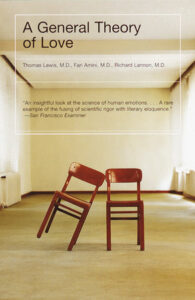
Why Relational Self-Care Matters to Your Work
Do you think of your love life as a critical component of your self-care? If you’re like most of us, probably not. Let’s see . . . work out: check, sleep eight hours: check, feel close with someone I love? . . . Not so much.
But relationships form the foundation of self-care. Every kind of therapist, body worker, physician, social worker, nurse, teacher, or coach needs a certain quality of relationships in order to care for ourselves and bring our most alive self to the work we do. Whether we realize it or not, we bring our relational life into the consulting room, clinic, or wherever we work.
So how do close, connected relationships turn us into better therapists?
Feeling connected or disconnected affects our nervous system. When we feel rejected or ostracized, we often have a fight or flight response that does not encourage connection. But when we’re in mutual relationships with reciprocity and deep knowledge of each other, we thrive. And we can better help others find their own healing relationships.
Limbic Resonance in Relationships 
In A General Theory of Love, Thomas Lewis and his colleagues describe something called limbic resonance, a harmonized state of body-mind. Limbic resonance helps us form attachments: as babies with our mothers, as lovers staring into each others’ eyes, as longtime friends listening deeply to each other . . . and even between therapists and clients.
When we are in a state of limbic resonance, there’s calm: we feel accepted and safe. We’re not going to be hurt. We’re not going to be blasted, shamed, or criticized. But there’s more. An extra something activates the limbic system of the brain; it’s a deep knowing, a feeling of hope, of being able to relate and have fun, to know the other person and feel understood by them.
Everybody seeks this resonance. It’s the state of body-mind our clients are looking for in therapy (most likely without realizing it). And it’s hard to create this with our clients when we don’t have it ourselves. That is to say, we therapists (as all helpers) need to cultivate mutual, resonant connections with the people in our lives as a part of our getting ready to do good work with our clients.
Make Contact
If you feel isolated, if you feel depressed, seek comfort, seek safety, and break away from this idea that independence is the ultimate goal for us. We helpers often forget to reach out when we’re in distress. So, get some limbic resonance with someone you deeply trust.
Anytime you seek comfort or safety through connection, you’re improving your nervous system in a way that helps you resonate with others.
Listen to ReConceive Podcast here and learn more about cultivating limbic resonance in your personal life, thus bringing more calm and vitality to your therapy practice.
Like to Subscribe?
Get notified when Deborah shares new ideas, art, and creative health information for you.
You have Successfully Subscribed!
We respect your privacy. No information will be shared.